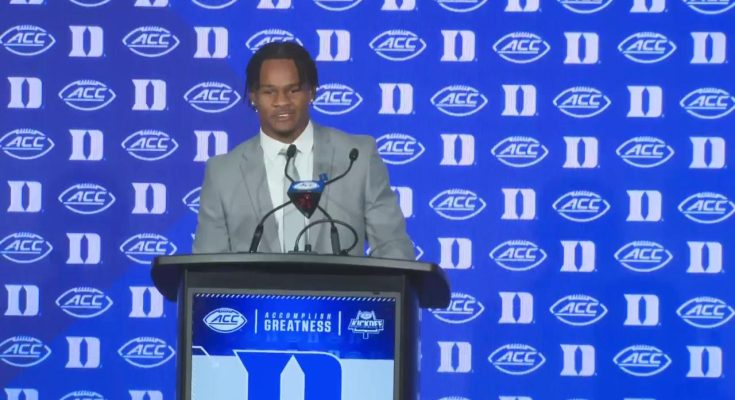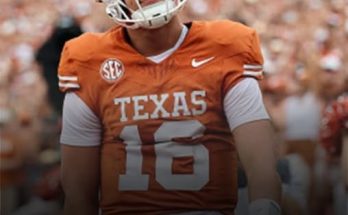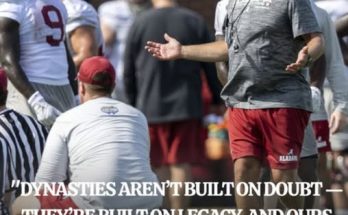The collegiate sports landscape has undergone a seismic shift in recent years, primarily due to the advent of Name, Image, and Likeness (NIL) legislation. What was once an amateur realm, where student-athletes were prohibited from profiting from their own personal brand, has transformed into a dynamic marketplace. This evolution has brought unprecedented opportunities for athletes to monetize their celebrity, but it has also introduced complex challenges for coaching staffs striving to maintain the delicate balance of team chemistry. Among those navigating this new frontier is Duke University’s head football coach, Manny Diaz, who recently offered insightful perspectives on how his program is adapting to the NIL era while preserving the cohesion vital for success.
Diaz, a veteran coach with experience leading programs both before and after the NIL ruling, dismisses the notion that financial compensation for players must inherently undermine team unity. He views the revenue-sharing era not as a disruptive force, but as a long overdue recognition of the athletes’ value. “They’re not mutually exclusive, right? The revenue sharing era is here,” Diaz stated at the 2025 ACC Football Kickoff. “The guys are getting what they’ve been long overdue. Their just reward. So, you can have that. You just have to set aside how are we going to have this culture, which, by the way, it’s not like you have to invent this.”
This perspective is central to Diaz’s philosophy. He argues that the challenges presented by NIL are not entirely novel. In essence, he sees it as analogous to any professional organization where individuals are compensated for their work, with varying levels of remuneration based on performance and value. “That’s the same way that any organization that anybody in this room works [for], there’s a way that people are compensated for their work. So, I don’t know why it would be any different. You want to create a culture where people who do the best work are compensated the best way,” Diaz 1explained. “And the people who have the greatest value are rewarded in the proper way. So, like I said, it’s new to college football. It’s not new to capitalism and economics.”
This analogy to the broader professional world is a powerful one, highlighting Diaz’s pragmatic approach. In any team-based environment, whether it’s a corporate sales team or a professional sports franchise, individuals contribute differently and are often compensated accordingly. The key, as Diaz suggests, lies not in eliminating these disparities, but in establishing a culture that understands, accepts, and even leverages them for collective benefit.
For Duke, a program renowned for its academic rigor and emphasis on holistic student-athlete development, the integration of NIL presents a unique set of considerations. The university prides itself on offering an unparalleled educational experience alongside competitive athletics. Manny Diaz recognizes that this dual commitment can be a powerful draw for recruits, and he aims to ensure that NIL opportunities complement, rather than detract from, this core identity.
One of the most significant concerns raised by critics of NIL has been the potential for locker room divisiveness. When some players secure lucrative endorsement deals while others do not, or when there are perceived inequities in compensation, it can breed resentment and undermine the collective spirit essential for team success. Diaz’s approach to mitigating this risk centers on fostering strong relationships within the team and emphasizing intrinsic motivators beyond financial gain.
He believes that a robust team culture, built on trust, respect, and shared goals, can withstand the pressures of NIL. This culture isn’t something that can be imposed from the top down, but rather something that emerges organically from the players themselves. As Diaz noted at the ACC Football Kickoff, “it was not him and his coaching staff who set the culture for Duke football, but rather it is the players in the locker room who set the tone for the team.” While he lays out the vision, the players are the ones who ultimately drive the day-to-day environment and work ethic.
This emphasis on player-driven culture is a cornerstone of effective team building in any era, but it becomes even more critical in the NIL landscape. When players feel a sense of ownership over their team’s identity and values, they are more likely to prioritize collective success over individual financial pursuits. Diaz’s strategy involves empowering his athletes, fostering open communication, and ensuring that every player, regardless of their NIL profile, feels valued for their contribution to the team.
Education plays a pivotal role in this process. Student-athletes, many of whom are still in their late teens and early twenties, are suddenly thrust into a world of contracts, negotiations, and personal branding. Duke, like many institutions, is likely investing in resources to equip its athletes with the financial literacy and business acumen needed to navigate NIL responsibly. This includes guidance on understanding contract terms, managing income, and building a sustainable personal brand that aligns with their values and the university’s. By providing these resources, Duke aims to empower its athletes to make informed decisions that benefit both their individual futures and the team’s overall well-being.
Furthermore, Diaz’s coaching philosophy often leans into concepts of “consistency” and “toughness.” In the context of NIL, consistency can refer not only to on-field performance but also to maintaining a consistent team-first mindset. He wants his players to understand that while individual NIL deals are a reality, the pursuit of collective excellence remains paramount. This means showing up every day with the same dedication, working cohesively, and supporting teammates, irrespective of their personal NIL earnings.
The concept of “toughness” under Diaz encompasses not just physical resilience, but also mental fortitude. In a world where external distractions and individual financial opportunities are ever-present, mental toughness becomes crucial for staying focused on the team’s objectives. Diaz likely instills this by emphasizing the value of hard work, accountability, and the shared commitment to winning. He understands that while the rewards of NIL can be significant, the ultimate satisfaction often comes from achieving goals as a unified group.
One strategy that many programs are exploring, and which Duke is likely considering or already implementing, is the creation of internal structures or partnerships that help facilitate NIL opportunities in a way that aligns with team values. This might involve working with local businesses to create deals that benefit multiple players or the entire team, or establishing a collective that emphasizes broad-based support for the roster rather than just a few star athletes. The goal is to ensure that NIL benefits can be spread equitably where possible, or at least that the disparities are managed in a transparent and understandable way.
The dialogue around NIL often focuses on high-profile athletes securing multi-million dollar deals. However, for many student-athletes, NIL opportunities are more modest, involving local endorsements, social media partnerships, or merchandise sales. A well-managed NIL program, under the guidance of a coach like Manny Diaz, will likely aim to educate all players on how to responsibly explore these avenues, ensuring they understand the rules, avoid conflicts of interest, and protect their personal brand. This includes emphasizing that NIL is not just about immediate financial gain, but also about developing valuable life skills in branding, marketing, and entrepreneurship that will serve them long after their playing careers conclude.
Moreover, Diaz’s emphasis on relationships extends beyond the locker room to the broader Duke community – alumni, donors, and fans. These stakeholders play a crucial role in the NIL ecosystem, often contributing to collectives or directly supporting student-athletes. Diaz and his staff are likely working to cultivate these relationships, ensuring that NIL initiatives align with the university’s values and contribute positively to the overall athletic program. This might involve clear communication about NIL policies, promoting responsible engagement, and highlighting how collective support for student-athletes ultimately enhances the Duke brand and its competitive standing.
The balance between individual financial incentives and team chemistry is a constant tightrope walk in modern college football. Coaches are tasked with maximizing their players’ potential on the field while also navigating the complexities of their burgeoning entrepreneurial endeavors off it. Manny Diaz’s insights suggest a proactive and adaptive approach, rooted in fundamental principles of leadership and team building. He views NIL not as an insurmountable obstacle, but as a new dimension within the existing framework of managing human capital in a performance-driven environment.
Ultimately, Diaz’s vision for Duke in the NIL era appears to be one where player empowerment and team unity can coexist. By treating athletes as valuable contributors deserving of fair compensation, while simultaneously cultivating a strong internal culture built on shared purpose and mutual respect, Duke aims to leverage the opportunities of NIL without sacrificing the intangible bonds that define championship teams. It’s an educational endeavor as much as an athletic one, preparing young men not only for success on the gridiron but also for the complexities of a professional world where individual achievement and collaborative effort often go hand-in-hand. This nuanced perspective, prioritizing both individual reward and collective cohesion, offers a valuable roadmap for other programs navigating the evolving landscape of college sports.


